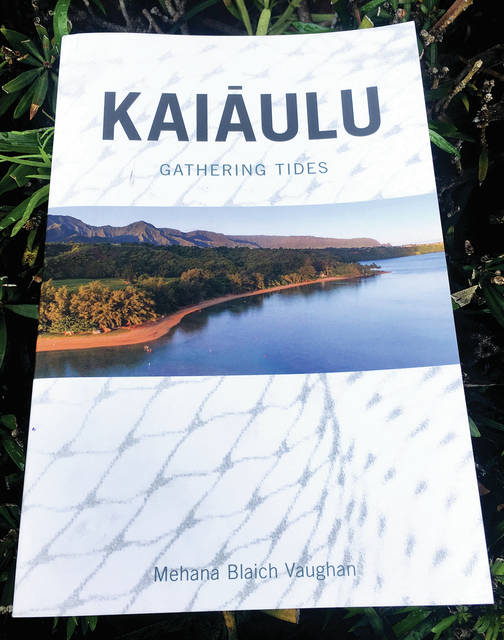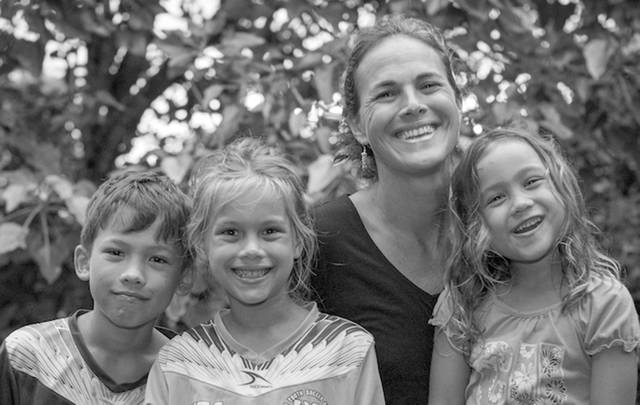Making poi from the neighbor’s taro, tending limu beds and throw-net fishing with Hawaiian elders, and deep connections between the people of Kauai’s North Shore paint a picture of community in Mehana Vaughan’s first book — “Kaiaulu: Gathering Tides.”
Kaiaulu means community in Hawaiian, and the University of Hawaii assistant professor tells the story of the group of people that have lived in northeast Kauai for centuries in a story that took 20 years to publish.
She also sheds light on how quickly those old traditions are changing with the influx of heavy tourism and new residents, and loss of coastal lands to form private retreats for the rich and famous.
“It’s about the community where I grew up and the families I’ve grown up with in our area,” Vaughan said. “My husband and I joke that it’s our fourth child and it took so much longer than any of the others.”
Vaughan grew up where the districts of Halele’a and Ko’olau meet on Kauai. She and her husband, Kilipaki, have three children and their oldest is 9.
She started work on the book after coming back home to Kauai from college and spent the next two decades researching history, cross-checking facts, and talking with kupuna.
“I’ve always loved to listen to kupuna and their stories. I believe they’re so important,” Vaughan said. “Not just interesting, but there’s so much to teach us about how to live in this area.”
There’s more to life on Kauai’s North Shore than living in a beautiful place or being able to harvest from the land, she says, and the stories in the book emphasize that with stories about how people in the kaiaulu share with one another and are shaped by the place where they live.
“It really is how you let the place define you and how you take care of it,” Vaughan said. “In taking care of it, you enhance its ability to nurture future generations and continue to feed people.”
More than 70 people were interviewed to compile the book, along with photos and Vaughan said many community members were involved in proofreading and other fact-checking before it was printed.
“In more recent years, I started interviewing children and grandchildren of these same elders (I’d already interviewed),” Vaughan said. “It’s not just lessons from the past, but how those values and lessons are applied today.”
The book arrived at Vaughan’s door a week after April floods caused major damage in the area, a surprise for the author as she was expecting a shipment of flood supplies instead.
“We were collecting things and I thought the FedEx truck was unloading flood supplies,” she said. “It came when it was supposed to come, just as our community was applying the same lessons that the book talks about in terms of working together.”
Chapters about tsunami and hurricane emphasize the way people came together and accomplished work as a community, allowing people to get things done they wouldn’t have been able to working on their own.
The book was also released during a time when many Kauai residents are having conversations about balancing visitor and resident life, which Vaughan said was triggered, or at least exacerbated, by the flood.
“I think the floods make it more real for us, what the limits are and the need to be able to live in balance with this place,” Vaughan said.
The importance of a place’s history and community is emphasized in the book, which Vaughan says is a story about what’s happening in a lot of places around the world.
“It’s a story about how to be a respectful visitor and how anyone can contribute to taking care of the place they love,” Vaughan said. “People have always gone before you in a place and it’s important to understand their connection and history and what they have to teach.”
Kaiaulu: Gathering Tides is available at bookstores and online.



